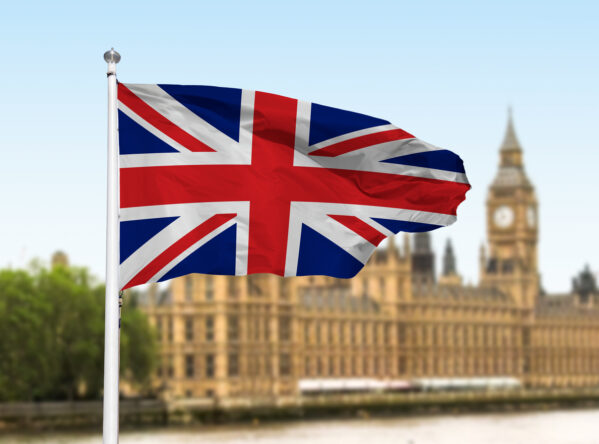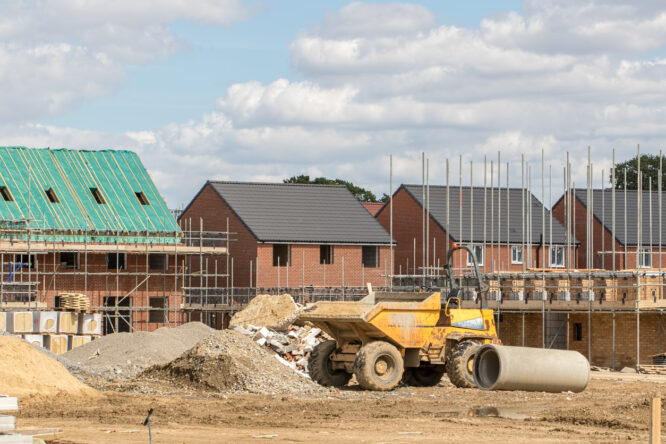These days, it’s impossible to trust a word out of the mouths of those in power (or who want to be in power).

It doesn’t matter which party’s colours they wear, how sincere they sound on live radio, or how many times they say “ordinary working people” in one sentence—British politicians are famous for over-promising and quietly underdelivering. And while some voters still cling to the idea that this time might be different, most people have learned to raise an eyebrow when certain phrases get rolled out. These promises sound nice. They test well in focus groups. But in reality, they rarely hold up once the cameras are off and the policies actually have to happen.
These are 13 of the most common promises politicians in the UK make again and again—across decades, manifestos, and party lines—only for the public to be left wondering why nothing ever really changes.
1. “We’ll fix the NHS!”

This line gets dusted off at every election, regardless of who’s in charge. It’s emotional, it’s universal, and it’s almost always meaningless. Despite promises to cut waiting times, recruit more staff, and improve access, people across the UK are still facing month-long waits for GP appointments, year-long delays for operations, and understaffed emergency departments that are constantly firefighting.
Meanwhile, exhausted healthcare workers strike just to be heard, and government responses are usually vague pledges wrapped in spin. The reality is, no party wants to face the political backlash of admitting how deep the cracks are—or how much fixing it would actually cost.
2. “We won’t raise taxes.”

Every time a party promises to keep taxes low, it’s worth reading the fine print—because the taxes may not go up in name, but they always find another way. From frozen thresholds (which quietly push more people into higher tax brackets) to council tax hikes, NI increases, and stealthy changes to benefits and allowances, the tax burden has a way of rising regardless of political promises.
Politicians rely on technicalities to keep this one going, claiming they’re not raising income tax while bumping up everything else around it. The end result? Most people feel poorer, and yet the government insists they’re sticking to their word.
3. “We’ll level up the country.”

This phrase gets thrown around a lot, usually without ever being clearly defined. It sounds bold and generous, but often turns out to mean one minor infrastructure project and a few vague press releases in a struggling town. Meanwhile, deeper regional inequalities stay untouched.
Public services continue to vanish from smaller communities, and economic opportunities stay concentrated in the same select areas. “Levelling up” becomes a buzzword with no weight behind it, used to win votes in places that haven’t seen meaningful investment in decades. Politicians love to say it, but no one seems prepared to do the heavy lifting it actually requires.
4. “We’ll tackle the housing crisis.”

This one might be the biggest political broken record of the last twenty years. Parties across the spectrum promise to build more homes, improve affordability, and make the system fairer, but house prices keep climbing, social housing stock keeps shrinking, and renters are still handing over half their wages for damp box rooms.
Even when housing targets are announced with great fanfare, they’re quietly missed or quietly revised later on. Big developers still get favourable deals. Landlords still hold most of the power. And for first-time buyers or low-income families, the “housing solution” remains a pipe dream with a glossy headline.
5. “We’re committed to net zero.”

Environmental pledges are now standard in every manifesto, but that doesn’t mean they’re treated seriously once the votes are counted. Green policies are often diluted, delayed, or deprioritised the minute they become politically inconvenient.
Whether it’s backtracking on clean air zones, cutting funding for renewable energy, or postponing key targets under the guise of “cost of living concerns,” the reality is that net zero commitments are rarely backed by consistent action. It’s easy to slap a carbon-neutral deadline on a press release. It’s harder to push through changes that require actual political courage in the face of backlash, and that’s where most parties quietly bail out.
6. “We’ll restore trust in politics.”

This promise tends to show up after every major scandal, usually spoken by the next person in line to benefit from the chaos. They vow to bring honesty back to public office, to clean up government, and to represent the people with “integrity.” And then? They carry on as before. Conflicts of interest are ignored. MPs take second jobs with zero transparency. Ministerial codes are bent or broken.
The public watches party leaders dodge questions, blame the media, or hide behind vague statements while insisting they’re rebuilding trust. At this point, the phrase “restoring trust” has lost all credibility—it’s just another part of the show.
7. “We’ll sort the trains.”

Whether it’s rail renationalisation, fare freezes, or shiny promises of “modernisation,” politicians always say they’ll fix the UK’s notoriously broken transport system. And yet, delays continue. Prices rise. Strike after strike points to unresolved problems that nobody seems to take seriously until they make headlines.
Train franchises collapse, passengers get stuck in carriages with no updates, and the gap between London-centric convenience and everywhere else keeps growing. Whatever side of the debate they’re on, the outcome is the same—commuters paying more for worse service, while politicians point fingers and pass the buck.
8. “We’ll support working families.”

This phrase gets used so much it barely means anything anymore. It shows up in speeches, leaflets, and interviews, but rarely in actual policy. The cost of childcare is still crushing. Benefits are hard to access. Wages don’t keep up with inflation. And every so-called support measure comes tangled in bureaucracy or complicated eligibility rules.
“Working families” has become a vague stand-in for “people we want to sound like we care about,” but the support rarely matches the rhetoric. Most families end up doing the same thing they’ve always done: figuring it out on their own, while wondering what happened to all that promised help.
9. “We’re cracking down on tax avoidance.”

This is a reliable crowd-pleaser in campaign season. Politicians promise to go after the ultra-rich and close loopholes, but once in office, those same loopholes somehow remain wide open. Ordinary people get penalised for minor filing mistakes, while multinational corporations and high-net-worth individuals continue to legally dodge millions.
Governments commission reviews, promise transparency, and launch half-hearted crackdowns that rarely lead to real change. The result? The public pays what they owe, while the wealthiest quietly restructure their finances offshore—and no one seems to have the guts to stop them.
10. “We’ll invest in schools and teachers.”

Education always gets a shoutout. However, while the words “investment” and “support” are easy to say, they rarely show up in classrooms. Teachers are expected to stretch dwindling budgets, manage overloaded classrooms, and absorb responsibility for everything from mental health to safeguarding—often without proper pay or respect.
New reforms get introduced without consultation. Resources are cut, then partially replaced with flashy pilot schemes that don’t reach half the schools that need them. Every government claims to back education, but few actually back it with the kind of consistency or funding that would make a lasting difference.
11. “We’ll fix social care once and for all.”

This is the holy grail of broken political promises. Nearly every Prime Minister in living memory has promised to overhaul social care, and nearly every one of them has kicked the issue down the road. The system remains underfunded, overstretched, and utterly confusing to navigate. Carers are underpaid, families are left to juggle impossible demands, and the criteria for getting support are inconsistent at best.
Fixing social care would require money, structural change, and long-term thinking—three things no government has been brave enough to commit to. So instead, they repeat the same line and hope no one notices that nothing’s changed.
12. “We’re listening to the people.”

This is the fallback line for politicians on shaky ground. But real listening means action, not just optics. Public consultations are held and then ignored. Surveys are cited selectively. Decisions are made behind closed doors, and “listening” turns out to mean “nodding politely before doing what we were going to do anyway.”
Voters can sense the difference between token engagement and genuine responsiveness. And yet, the phrase keeps getting used—probably because it sounds better than admitting that policies are often made to please party donors, media headlines, or polling data rather than the actual public.
13. “This is a government for everyone.”

It’s the classic closer. It sounds noble, inclusive, and deeply reassuring. But once the dust settles, it becomes clear that most policies tend to benefit certain regions, income brackets, or demographics far more than others. Whether it’s tax cuts for landlords, contracts for private companies, or laws that disproportionately affect marginalised groups, the reality rarely matches the message.
A government “for everyone” wouldn’t leave entire communities feeling unseen, unheard, or forgotten, but that’s often exactly what happens. The phrase might look good on a podium, but it doesn’t hold up under scrutiny. Voters are starting to notice the gap between the slogan and the lived experience.




